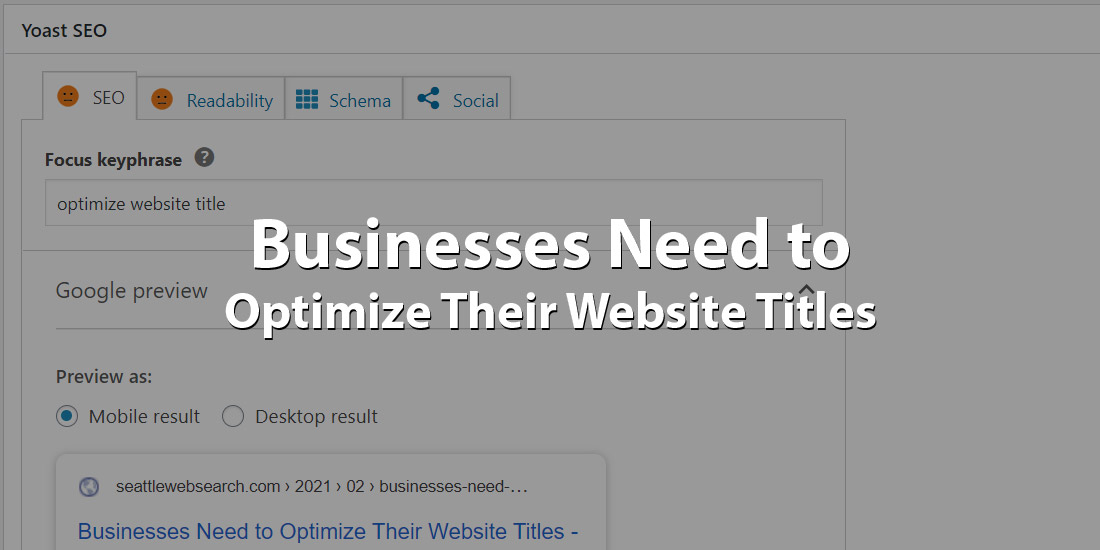Two items that frequently appear during our SEO audits are missing title tags and meta descriptions on pages. These two aspects are crucial in your quest to increase your presence and rankings on Google. Luckily, they are easy to write and add to your website. Moreover, they will automatically help your site become friendlier with search engines.
Google wants to rank websites that will answer a searcher’s question or provide the necessary information. Google wants your site to be the expert that the searchers are looking for.
SEO is split up into 2 categories, on-page SEO (website related, often penalized by Google if you have issues, speed and security are the mandatory) and off-page SEO (non-website related, ie. social media, video, backlinks, etc). Once you have good on-page SEO, Google starts to consider your off-page SEO compared to the competition. Off-page SEO works at its best when you have good on-page SEO.
After addressing any major penalties comes keyword optimization. Title tags are key for search engines. Title tags are the most important part of using keyword research and optimizing your content.
Contents
In WordPress, your title tag will default to the title of a page (or blog post, product, event, etc.) plus your site title
Any of this information can be customized if desired.
Depending on which CMS you use to edit your website (WordPress, Squarespace, Wix, Shopify), there may be default title tags in-place that are not doing much good for you. For example, your “About Us” page might have a title tag that reads “About Us | Company ABC.”
In tabbed browsers, you will usually also see the SEO title in the page tab, as shown in the image below.
A good title should help you rank for a keyword
Unique titles help search engines understand that your content is unique and valuable
They also drive higher click-through rates. On the scale of hundreds or thousands of pages, it may seem impossible to craft a unique title for every page, but modern CMS and code-based templates should allow you to at least create data-driven, unique titles for almost every important page of your site. For example, if you have thousands of product pages with a database of product names and categories, you could use that data to easily generate titles like:
[Product Name] – [Product Category] | [Brand Name]
Absolutely avoid default titles, like “Home” or “New Page” — these titles may cause Google to think that you have duplicate content across your site (or even across other sites on the web). In addition, these titles almost always reduce click-through rates. Ask yourself: how likely are you to click on a page called “Untitled” or “Product Page”?
A good title must make the user want to click through to your page (write for your customers)
While title tags are very important to SEO, remember that your first job is to attract clicks from well-targeted visitors who are likely to find your content valuable. It’s vital to think about the entire user experience when you’re creating your title tags, in addition to optimization and keyword usage. The title tag is a new visitor’s first interaction with your brand when they find it in a search result — it should convey the most positive and accurate message possible.
Optimizing page titles after publication
When looking at Google Analytics data, if you notice a page getting more traffic, try optimizing the page title and meta descriptions again or writing a follow-up article to link to.
Invest a little more time in writing good page titles. It really is worth it. Going back and optimizing some of your page titles after publication might also be worthwhile. This is especially true if you’re already ranking well, but aren’t getting very many clicks.


